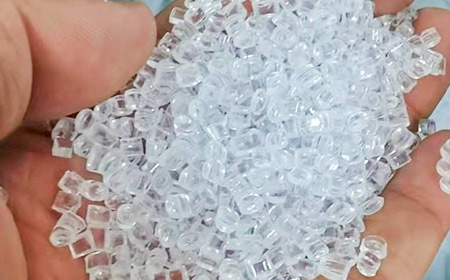Why do We Use Polyethylene for Rotomoulded Products at Light Venus?
 Mar 25,2022
Mar 25,2022

Why do We Use Polyethylene for Rotomoulded Products at Light Venus?
The material of choice for rotomoulded prodducts manufacturing at Light Venus is polyethylene because of its excellent impact and chemical resistant properties. Below is the brief guide to polyethylene.
What is polyethylene?
polyethylene (PE), light, versatile synthetic resin made from the polymerization of ethylene. Polyethylene is a member of the important family of polyolefin resins. It is the most widely used plastic in the world, being made into products ranging from clear food wrap and shopping bags to detergent bottles and automobile fuel tanks. It can also be slit or spun into synthetic fibers or modified to take on the elastic properties of a rubber.

What are the different types of polyethylene?
Polyethylene is commonly categorized into one of several major compounds, the most common of which include LDPE, LLDPE, HDPE, and Ultrahigh Molecular Weight Polypropylene. Other variants include Medium Density Polyethylene (MDPE), Ultra-low-molecular-weight polyethylene (ULMWPE or PE-WAX), High-molecular-weight polyethylene (HMWPE), High-density cross-linked polyethylene (HDXLPE), Cross-linked polyethylene (PEX or XLPE), Very-low-density polyethylene (VLDPE), and Chlorinated polyethylene (CPE).
Low-Density Polyethylene (LDPE) is a very flexible material with unique flow properties that makes it particularly suitable for shopping bags and other plastic film applications. LDPE has high ductility but low tensile strength, which is evident in the real world by its propensity to stretch when strained.
Linear Low-Density Polyethylene (LLDPE) is very similar to LDPE, but offers added advantages. Specifically, the properties of LLDPE can be altered by adjusting the formula constituents, and the overall production process for LLDPE is typically less energy-intensive than LDPE.
High-Density Polyethylene (HDPE) is a robust, moderately stiff plastic with a highlypolyethylene-hdpe-trashcan-1 crystalline structure. It is frequently used in plastic for milk cartons, laundry detergent, garbage bins, and cutting board
What distinctive characteristics make polyethylene an ideal material option for rotomoulded products.
Polyethylene have the following characteristics that have made them the most widely used plastic for rotational molding:
- Can be easily ground to 35 mesh at high rates
- Tailor-made thermally stable with proper stabilization additives
- Can be molded in high temperature, high-speed rotational molding equipment without excessive oxidation
- Have excellent low temperature physical properties, such as impact strength, allowing their use in a broad temperature range
- Different densities and melt indices to fit the needs of simple, non stressed items as well as extremely large, highly stressed applications
- UV stability or outdoor life significantly improved by the addition of pigment or UV stabilizer
- Can Custom built to meet FDA food contact requirements
- Excellent chemical resistance making them ideal for numerous large agricultural and industrial chemical tanks
- High dielectric strength for use in electrical applications requiring insulation properties
If you are in any doubt as to material suitability please contact us for further information.
 Tel: 0086-13632687993
Tel: 0086-13632687993  Email: roto@lightvenus.com
Email: roto@lightvenus.com

 Home
Home Why do We Use High Density Polyethylene for Plastic Lamp shade?
Why do We Use High Density Polyethylene for Plastic Lamp shade?  You May Also Like
You May Also Like



 Tel
Tel
 Email
Email
 Address
Address








